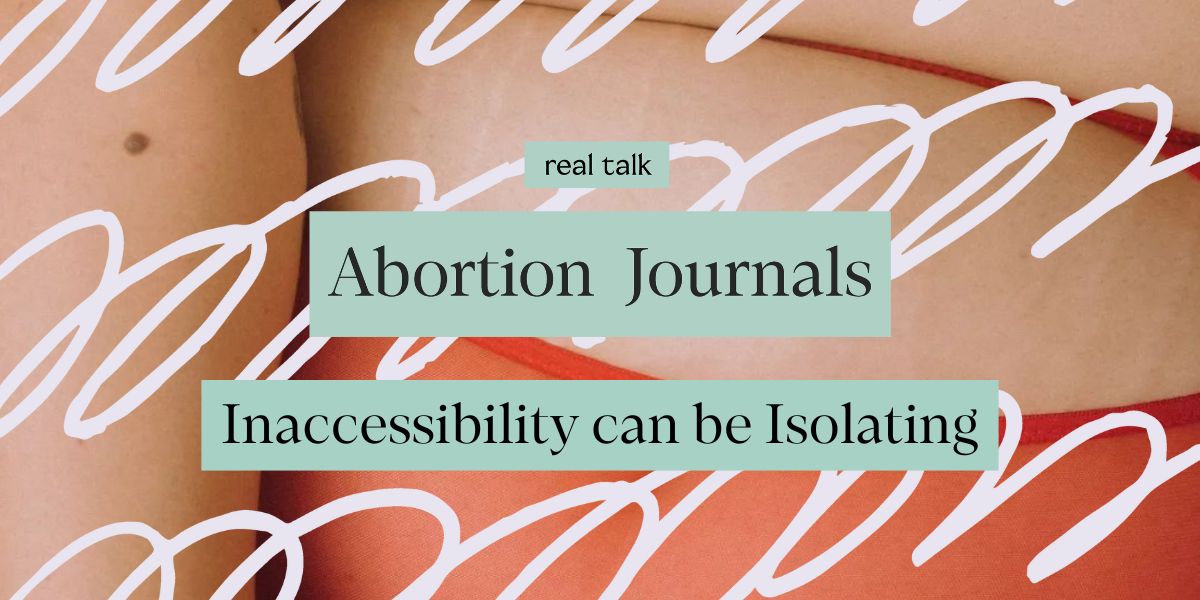Claire Wasserman dishes on her fertility journey and advice for queer couples

Trying to get pregnant can be a complicated process for anyone, and is even more nuanced for queer couples. Many times it can feel impossible just knowing where to start. Connecting with other people going through the same thing, and sharing stories, can be helpful in so many ways. Ladies Get Paid founder, Claire Wasserman, has been sharing her fertility journey with her online community for the past few months. With love and support from her wife, Ashley, Claire is currently going through her third round of IUI, and will move to IVF after if necessary.
We were lucky to sit down with Claire and chat about all things fertility: how she knew she wanted a child, what she wished she knew before she started trying, advice for other queer women trying to conceive, and so much more.
Greta: Can you start by telling me a bit about yourself and how you got to this point?
Claire: Sure. So I'm the founder of Ladies Get Paid. We're an educational platform and global community that supports women in their journey to earn more and live better. I run the company with my wife. I was the one who actually started it technically, and she was a member. It's a much longer, more dramatic story, but I ended up leaving my husband for her. I was married at the time, and realized I was a lesbian at age 30. We've been married now for a year, but together for six years. Throughout that experience, lots of amazing and very intense things have happened, both for us personally and professionally. Three years ago, we moved from New York, where we had both been for a decade, to Los Angeles.
I just started the journey of trying to get pregnant in the last couple of months. So we're now in our third round of IUI. And by the way, in case it's applicable, I'm 36.
Greta: How did you and your wife decide when it was the right time?
Claire: So we knew when it wasn't the right time. It wasn’t the time when we were being sued for gender discrimination by a group of men's rights activists, we knew it wasn’t the right time when I was getting a divorce. And you know, we weren't married yet. We knew it wasn't the right time, when we were planning a conference for 1000 people, or when we moved across the country in the middle of a pandemic, and our business was in a freefall, right? So we finally got to the place where the waters kind of calmed a little bit. Knowing that so much of our lives so far have just been filled with chaos, we kind of expect it always to have chaos.
So it was the fact that there's even a moment where there's no crisis that's happening. I think there's never a right time to have a baby, and only a wrong time to have a baby. Also knowing that it might take longer than potentially a heterosexual couple, and reminding ourselves that getting pregnant doesn't mean you have the baby tomorrow. We will still have months to prepare. Here's the truth, though. It's been three months of trying to get pregnant. So our calculus was correct. Really we're just buying more time. That's the upside. We tell ourselves every time it doesn’t work, we just have more time to get our shit together.
Greta: Did you always know you wanted children?
Claire: Yeah, for sure. I definitely knew I wanted to have kids. I thought I was heterosexual so I just assumed I would be doing this with a man and never ever contemplated what this would be like. From all aspects of having a baby with somebody else, having a baby that's not your DNA with another person. I feel like my idea of having kids completely changed when I got into a relationship with Ashley. I never questioned whether or not I wanted kids, just the way that I imagined it was a little different. I also always assumed that I would have at least two probably, but seeing how things are going given our age and how expensive this is- the reality is, we may only have one. It's just a recalibration of what I imagined the future to be, but nothing fundamental has really changed.
Greta: That makes sense. How did you and Ashley decide who was going to carry the baby?
Claire: It was an easy decision, Ashley was like, hell no. She has no desire, and feels very strongly about not carrying. And I'm really excited. I mean, famous last words, get back to me when I'm pregnant. But my mom said that when she was pregnant with me it was the best time of her life. Hearing that from my mom I’m really hoping genetics play a piece and I have a journey like hers. That being said, she also had twins after me. And that was not fun.
Greta: You know, I have one sister and my mom actually told me her 18 months being pregnant were like the best 18 months of her life.
Claire: I actually appreciate hearing that because I've only been hearing about bad stuff.
Greta: So, fertility treatments can be a bit confusing and nuanced. I'm curious what the hardest part was about getting started?
Claire: The overall overwhelming amount of information. And I want to be very clear about this. We need information with context, right? I realized the profound significance of context in this process, because it's also not a one size fits all, and you're making decisions both with yourself, but also with your doctor.
The first thing that was really overwhelming was choosing a donor. We had some criteria. Ashley is Italian, and for her knowing that she wasn't going to be DNA related she felt it was really important that our donor be Italian. It's hard to find somebody who's Italian, to be honest. We're looking at cryobank and it was slim pickens. We also wanted their medical records, and yeah, we'd love to be taller than five nine if possible, and obviously good looking. Could their SATs scores be great? I mean, you're paying so much. And by the way, prices have gone up, even since we started this process. There's a sperm shortage.
I actually started looking for a donor well before we decided we were officially ready to start the process. Our goal would be if we do have multiple kids, they would all have the same donor. It probably took me about three months of looking before I pulled the trigger on a guy- turns out he's Italian Jewish. We both agreed, let's just buy the vials. That was the beginning of the process pre-officially, when we decided we were ready.
Here's the big pressure that we were under: we only felt comfortable affording four vials. They recommend you buy eight, if you want to have two kids with the same donor. Each time you use a vial it's done. And how many tries is it going to take to have a baby and potentially more than four tries and then we'd be out of luck.
Here's the really good news though. I actually froze my eggs when I was 32. A company sponsored me so I didn't have to pay for it, and I got 28 frozen eggs. So really, really good. We're being reminded that changed the game because we lucked out with our OBGYN. He said, “listen, why don't you do three rounds of IUI? And if it doesn't work, no worries, go to IVF. You've already done half the process, half the cost, and a huge majority of the pain, which is the freezing. If you have one vial for 28 eggs, that's all you need.“
Greta: And I'm curious, why did you initially choose to do IUI instead of IVF?
Claire: That's what they recommend. They also recommended that I start doing IUI “naturally” which is just so funny to me, because this whole thing is science.They said “let's just try no hormones.” It didn't work. The second time we tried hormones. I think this was a total mistake. If I would have done this again. I would have started with hormones. You know why? Because they cost barely anything.
I would rather spend more money on acupuncture and hormones and pain. I look at it as an insurance policy on the exorbitant amount of money we're already spending on doing the IUI. I wish somebody had talked me through that whole process. If you can make it work on the IUI, even though that also is expensive, you will save money. So we felt like let's gamble. We were willing to gamble our money a little bit on the cost of IUI. Even though I have a feeling we'll end up probably just going into IVF anyway. But you know if the IUI worked, that would have been a savings.
Greta: It sounds like that's something you wish you knew before you started. Is there anything else you wish you knew before you started this process?
Claire: I'm like, should I go into business now helping people through this process? Because like, you don't know what you don't know. I think being able to know your balance of connecting with others and sharing, but also filtering and setting boundaries for yourself. That's really, really important.
I think the big life lesson that has come from all of this is to learn how to detach myself from the outcome, which is contradictory, right? We're going through all this because we want this outcome so badly. But then every time it doesn't work, we have to deal with it because it's so heavy. You think, “but I put in all this work and all this money, I should get a reward,” as if you know, it's a meritocracy to have a baby. That's not how this works. Just because I'm going to acupuncture doesn't equal results. So now I completely rethink. How can I give myself pride and joy before the baby's even here? How can I be okay without the baby? It's really finding all the life lessons I possibly can in the process. Like learning about my body and how fascinating our bodies are, the healing that I have to do in my relationship with my body. That's a life lesson. Learning how to not catastrophize the future and really live in the moment. Also a great life lesson. So I really wish somebody said, “hey, listen, I know, this is all about the outcome. But in a way, you need to kind of let go of the outcome.” Again, the joy and the growth and the fulfillment and the pride in the process itself.
Greta: You touched on this but I'm curious to hear more about how you decided to share this journey and be so open on social media.
Claire: That's been the Ladies Get Paid ethos. I never talked about my relationship or my sexuality or fertility in Ladies Get Paid, it's all been very professionally focused. But we’re living our lives, our work, it's our money. It's all connected. I did a lot of soul searching during the pandemic, about what my special gift is in this world, what my purpose is and, and the word I kept coming back to was truth. That’s the feedback that I get from other people. They pick up on the realness and so I thought I need to share this because it's going to help other people. Yeah, you know, and it helps me to be able to process what I'm going through to not feel alone in it. Also, it's pretty fucking feminist. Money is tied to everything that I do with Ladies Get Paid, and the cost of this is so much, which also has inspired me to raise my prices. And that's very Ladies Get Paid, so I felt doing this was not a far departure from what I was already doing. And it just further pulled the thread of what I feel like is most special about me and our brand and that is the real talk of it all.
Greta: Do you have any advice for queer couples trying to conceive? I know you've dropped pieces of advice throughout this whole conversation but if there's anything else that you want to say.
Claire: Find people. I’m in a texting thread with random people- some woman who saw me on LinkedIn and reached out. We had a zoom with her and her wife. We have some friends now, single moms who had their babies through California cryobank. So we know the baby and we were like oh my god is this our future baby from California cryobank? That sense of community feels so good. If you're surrounded by people who are in hetero relationships or who haven't had fertility issues, you feel so isolated, and you don't have those kinds of tough conversations and questions to ask. Community hands-down.
Keep Reading

Our team's experience taking the morning-after pill
6/2/2023 • 4 minutes

The 411 on Genetic Testing
5/16/2023 • 3 minutes

Do men have a biological clock?
Apr 18 • 3 minutes










